Download or view the file below to find simple instructions on downloading your Farm Map from the Wilmar Grower Web.
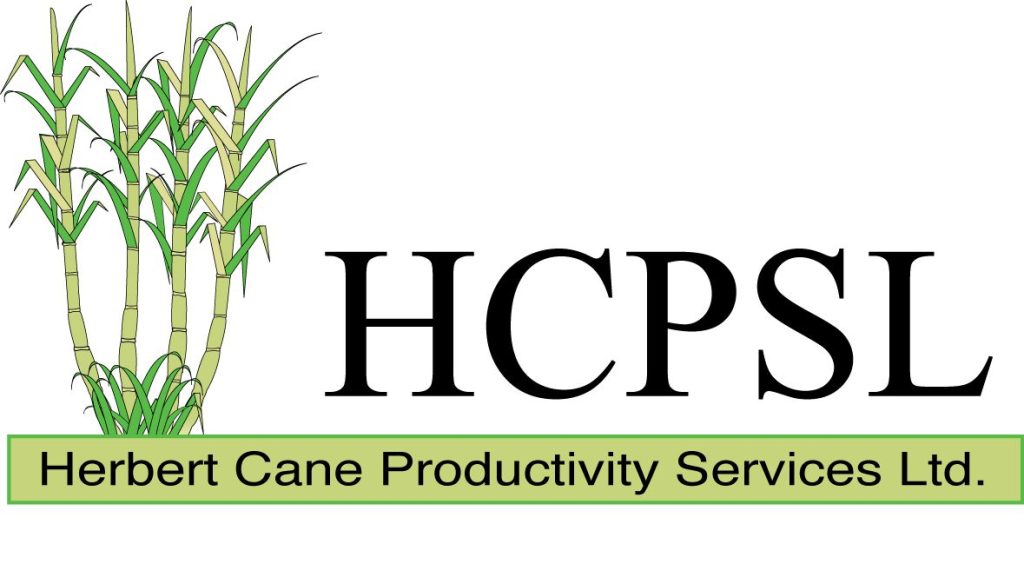


Download or view the file below to find simple instructions on downloading your Farm Map from the Wilmar Grower Web.

If you are a Cane Farmer or work in the industry then come along to this exciting event of networking and sharing of practical information.
Learn from farmers who are innovating and making changes to their farming system as they share their experience in the paddock.
The forum will include small group visits to 4 farms in the Ingham district over 2 days along with a fantastic social night of networking and a chance to meet innovative companies supporting cane farmers who are sponsoring the event.
For further information visit The Regenerative Cane Farming Forum website here.
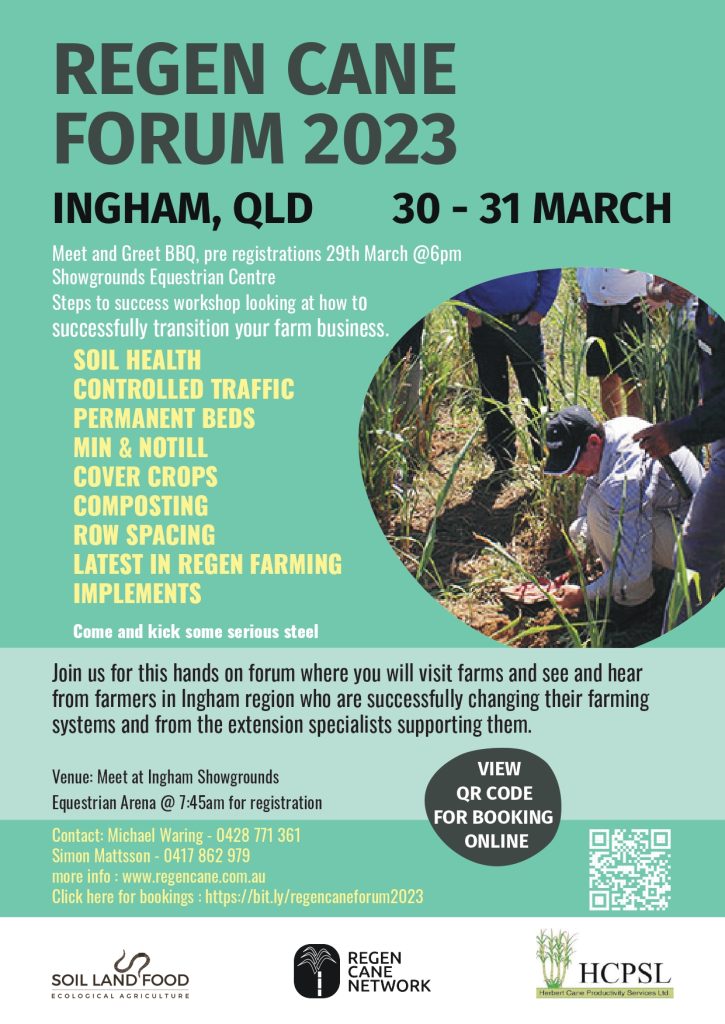
Come along to hear from multiple presenters, on a variety of topics surrounding pesticide use. All growers welcome to attend.
Wednesday 22nd February 2023
From 8:30am to 3pm
Herbert River Crushers Clubhouse, Sportsman Parade, Ingham.
For catering purposes, please RSVP by Friday 17th of February to the HCPSL Office on (07) 4776 1808.
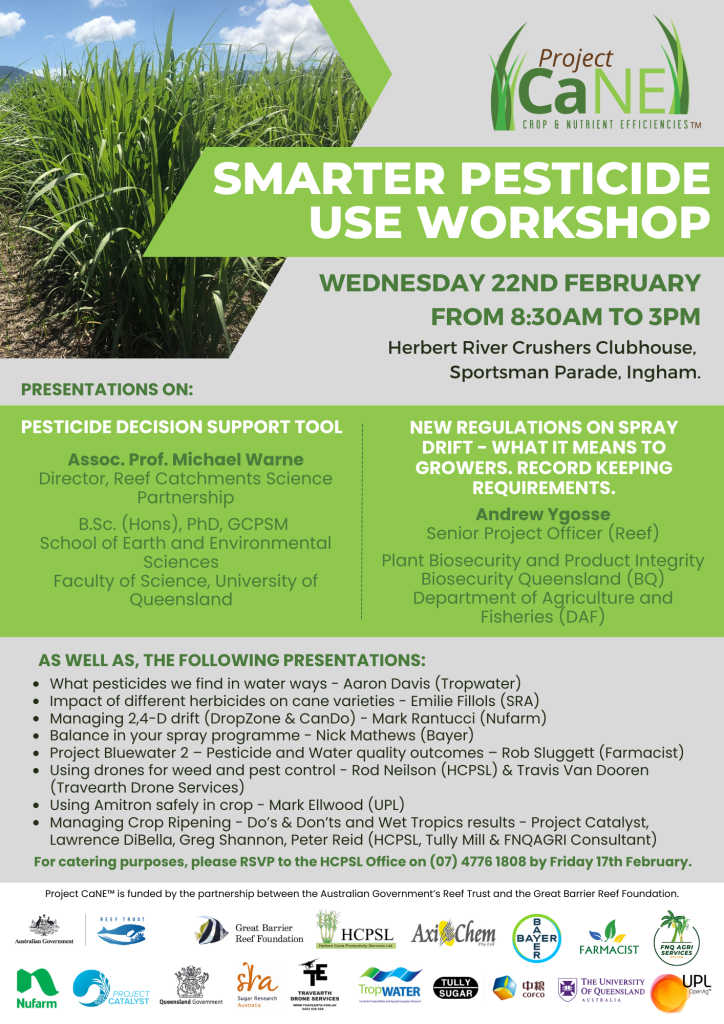
Project CaNE™ is funded by the partnership between the Australian Government’s Reef Trust and the Great Barrier Reef Foundation.
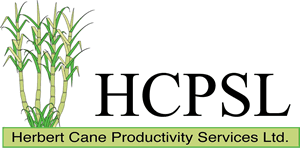
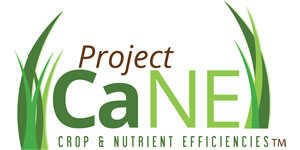

HCPSL will start seed cane inspections for growers tomorrow (Tuesday 31 January) for all Herbert growers. This year things will be done a little differently. HCPSL will be using three different methods of testing this season.
SRA’s Molecular Plant Pathologist Dr Chuong Ngo and Translational Research Pathologist Dr Rob Magarey visited HCPSL on 24 January to train HCPSL staff on the new Ratoon Stunting Disease (RSD) testing method called leaf sheaf biopsies (LSB).
A core (otherwise called a leaf punch) is taken from the leaf sheath of the cane plant, mixed with distilled water, and then sent off to the laboratory for analysis. The RSD bacteria weeps from the leaf punch into the distilled water over a few hours and is then analysed.
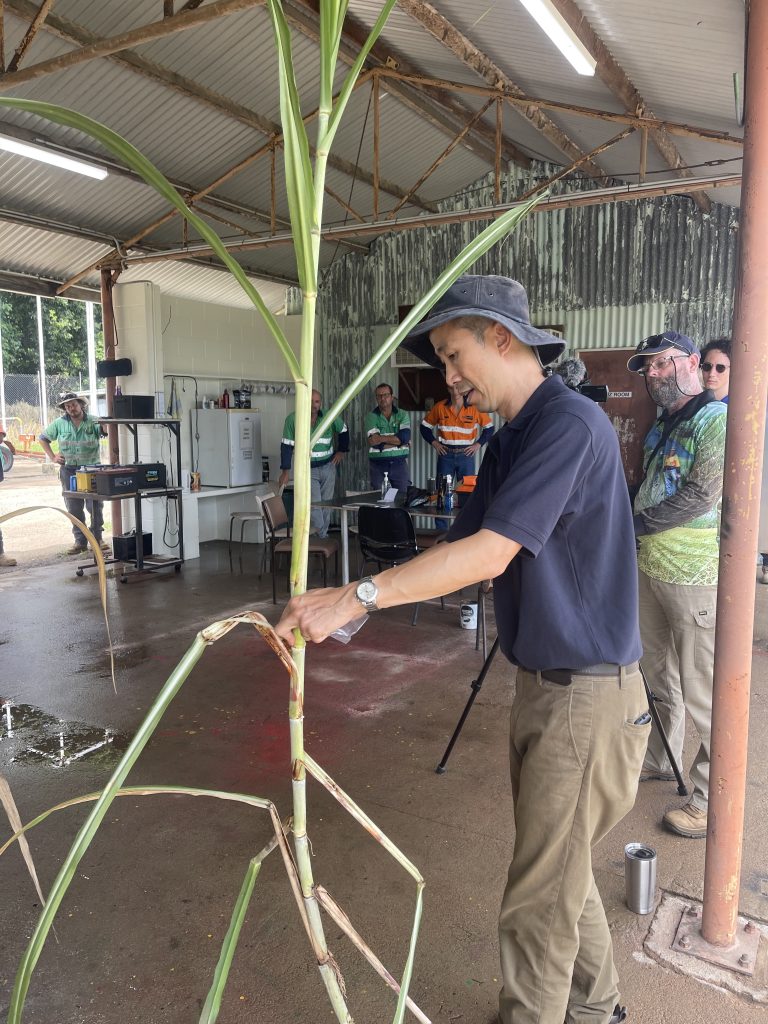
This sampling method is just as accurate as the expressed xylem sap method and both use the quantitative polymerase chain reaction (qPCR) test that was made available to growers two years ago by HCPSL. However, the LSB method is more efficient in the field for collection of samples. It can also be done earlier in the year that phase contrast microscopy (PCM) method. The PCM (microscope) method will still be made available to growers, but this method can be less accurate when detecting RSD than LSB and qPCR.
HCPSL staff will only be testing cane that will be used for planting in 2023. Growers will only be permitted to sample one block/variety for every 20 ha farmed. This ruling has been put in place to allow HCPSL staff to get across all farms. There will be no charge for Herbert growers using the seed inspection service.
Growers who wish to undertake a whole of farm RSD survey will be invoiced accordingly. This is not a core HCPSL service. Full farm RSD surveys will only be undertaken mid-year after all seed inspections are completed for cane to be planted this season.
The other change this year is that growers will need to come into the HCPSL office with their most recent farm maps, downloaded from the Wilmar website, to book a seed cane inspection with HCPSL staff. Due to changes at Wilmar concerning data management and security, HCPSL currently does not have copies of grower farm maps and data.
HCPSL is working with Wilmar to gain access to farm data, but new computer systems will need to be upgraded before growers can go online through the Wilmar website to grant permission to HCPSL to gain data access. Both HCPSL and Wilmar apologise for the inconvenience caused and are working together to resolve this matter.
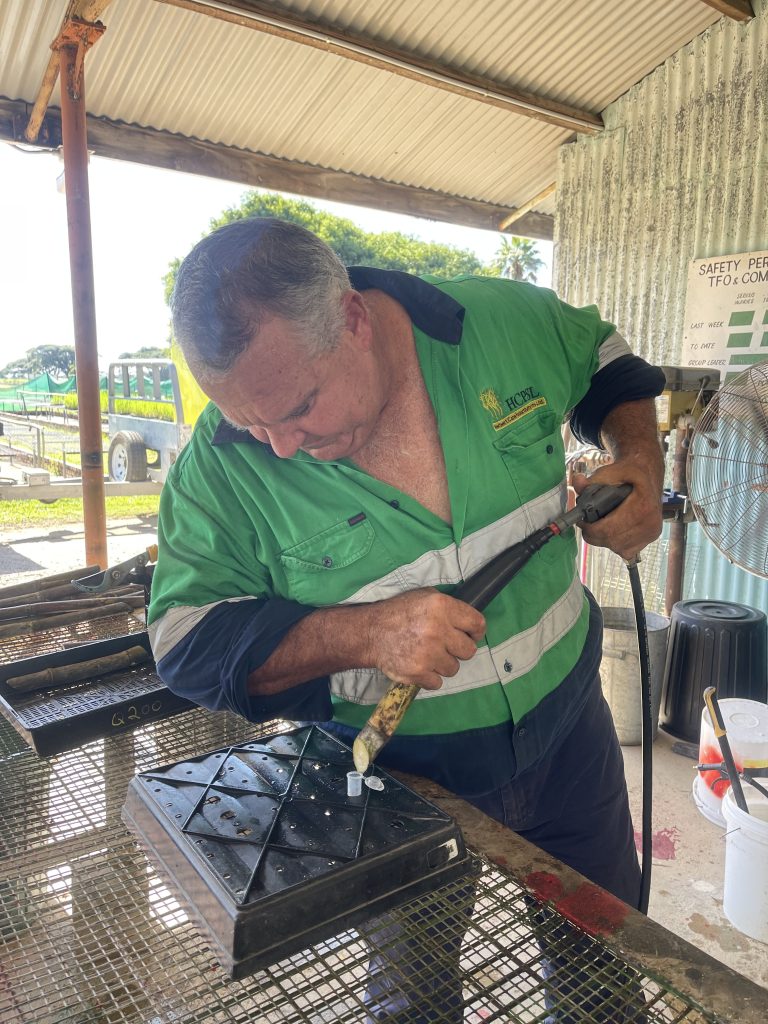
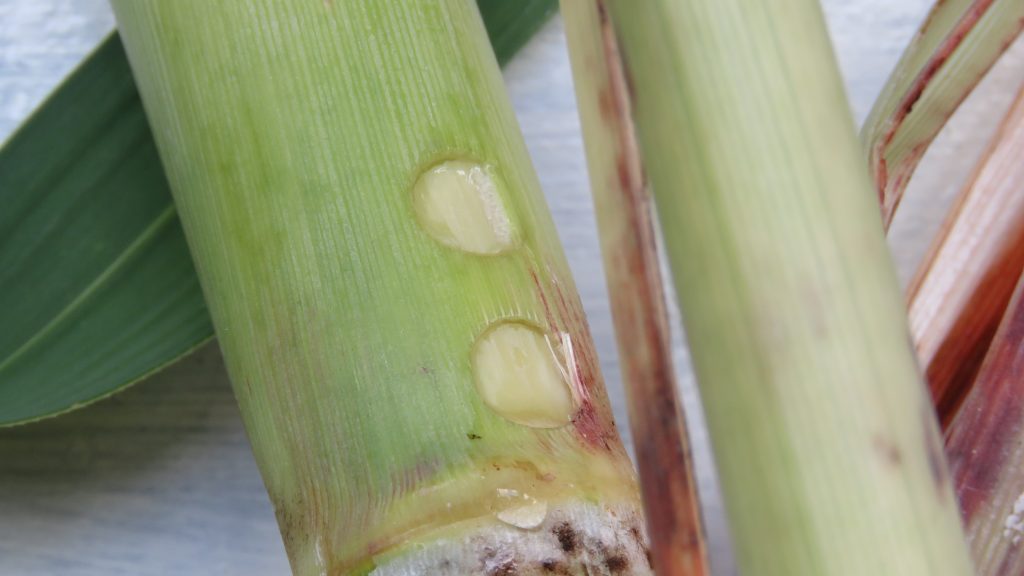
The turnaround time from collection to receiving your results using the LSB and qPCR methods is about two weeks, so growers will need to plan which varieties/blocks they want tested. RSD samples will be processed by both the SRA and Metagen labs located in Brisbane and Gatton respectively.
HCPSL and SRA data have shown that growers who utilise Approved and disease-free planting material will grow on average 11 tonnes cane per hectare (tch) more than growers who don’t.
Don’t take it for granted that the cane you are planting this year is disease free, get it tested!
Growers are urged to contact the HCPSL office ASAP to organise a seed cane inspection by HCPSL field staff.
To download a copy of the Press Release, view the document below.

Earlier this week, ABC Rural reported on rat damage currently occurring in the Herbert.
To read the full article, visit the link below.
Or for more information concerning the permit, please contact: Lawrence Di Bella – HCPSL Company Manager on 0448084252.
As 2022 draws to a close, HCPSL reflects on some of the highlights from the year. With the support and backing of growers, Wilmar and the community, the HCPSL team is proud of the many triumphs made for the Herbert industry throughout 2022.
HCPSL would like to take this opportunity to thank growers in the Herbert. Thank you for assisting with trials, attending workshops, coming along to meetings and providing feedback on the services HCPSL provides.
The HCPSL team looks forward to continuing to service and work with Herbert growers in 2023.
Wishing Herbert growers and our community a Merry Christmas and a Safe & Happy New Year.
Please note the HCPSL Office will be closed from the 24th December 2022 and reopen on the 3rd January 2023.
Please contact Adam Royle on 0417 610 446 for any urgent enquires during this period.
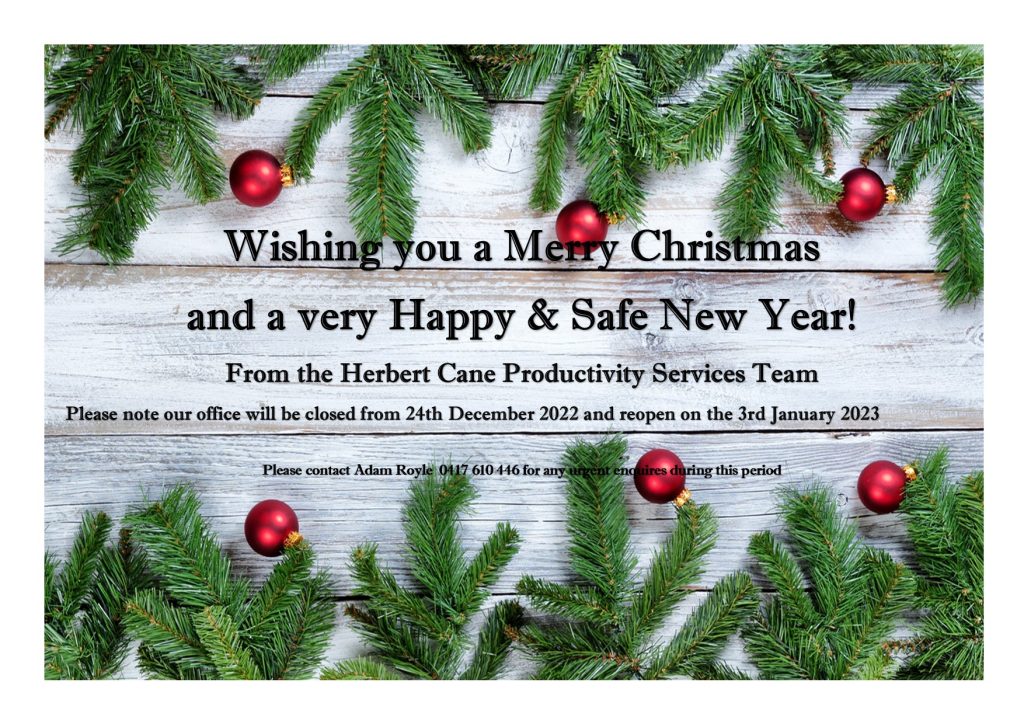
Throughout the year, many of the HCPSL staff team reached remarkable milestones in terms of years of service.
With many staff serving the local industry for the past decade and beyond, the team would like to recognize the following individuals for their valuable work in the Herbert and broader sugar industry.
To acknowledge the past and ongoing efforts of HCPSL staff members, the team has compiled some images from the archives! Through the work of committed staff and passionate Herbert growers HCPSL is proud of the many advances made by our local industry.
Prior to the conference staff from a number of the Productivity boards including HCPSL attended a biosecurity training workshop to become qualified Authorised Inspection Persons (AIP). The training covered the latest in biosecurity legislation and current regulations as well as the General Biosecurity Obligation held by all Queenslanders to ensure they do not spread a pest, disease, or contaminant. The training familiarized staff with their role and responsibilities as inspectors and covered off on biosecurity processes including the inspection of machinery in sugarcane production and the issuing of biosecurity certificates.
HCPSL would like to take this opportunity to remind growers and contractors who work in the sugarcane industry of their General Biosecurity Obligation. If you have machinery or equipment requiring an inspection, please contact the HPCSL office on (07) 4776 1808.
Last week, HCPSL and Burdekin Productivity Services (BPS) hosted productivity services groups from across the industry at the 2022 Combined Productivity Services Group Conference. Productivity groups from Mossman to Isis were in attendance. Over 60 industry agronomists and advisors visited the Herbert to explore news ideas, discuss issues, and share findings.
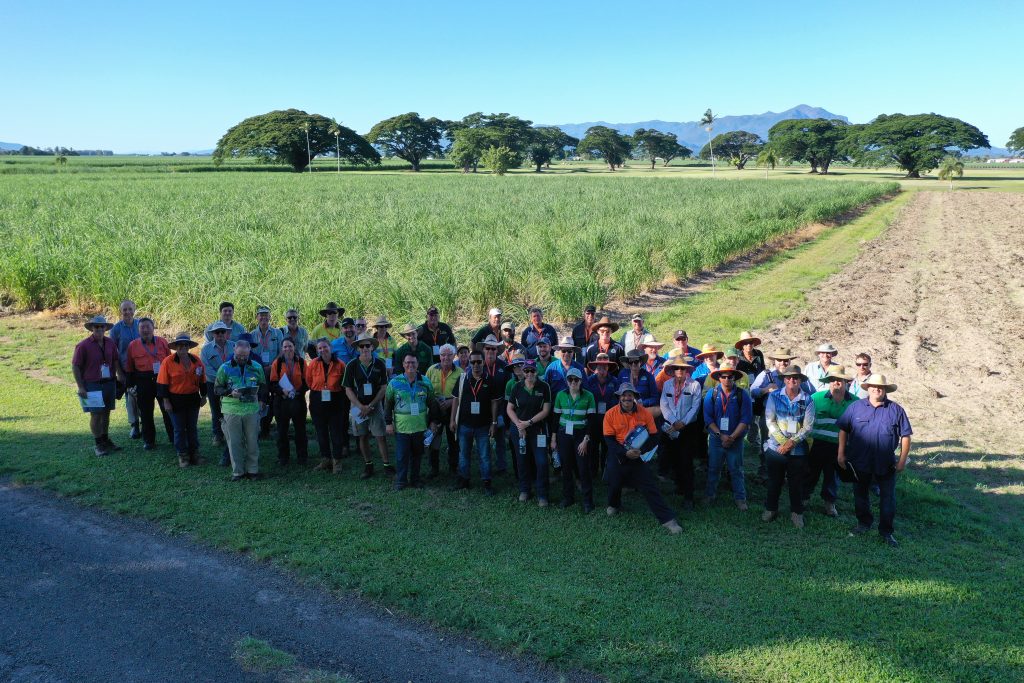
Over 2 days the groups focused on a range of topics, including – diseases, varieties, pests, technology, weeds, and nutrition. Throughout the conference, the groups discussed industry and district specific issues they faced.
Alike to the Herbert, delivering clean seed was a key triumph and core focus for many productivity groups. While RSD, pigs and rats were highlighted as common issues across various districts.
Initial presentations became the catalyst for extensive group discussion around methods for managing RSD and the effective delivery of clean seed. Conference participants then visited the Macknade site, where varieties were spotlighted. Presenters from across the industry explored the use of genomic selection, molecular markers and tissue culture.
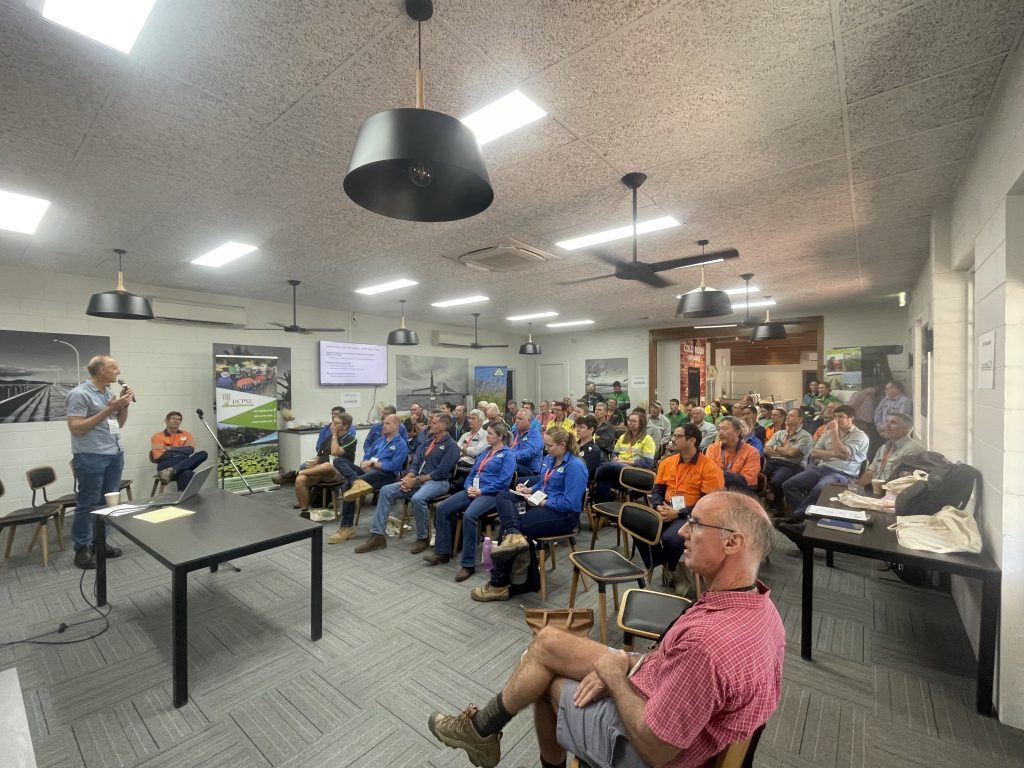
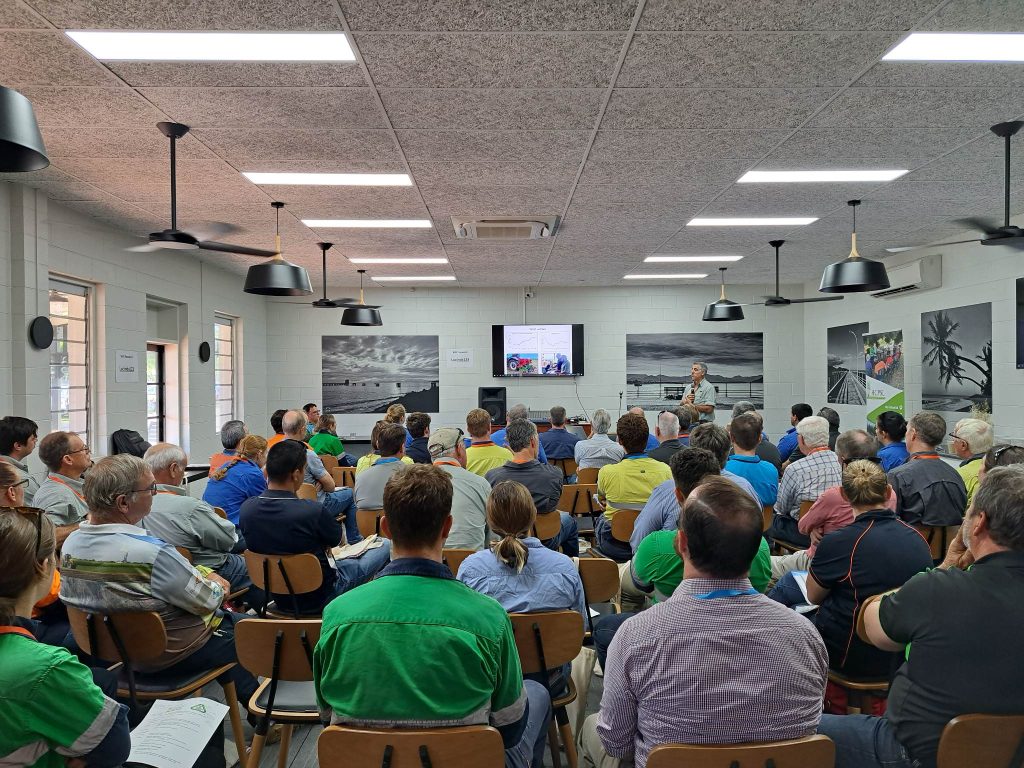
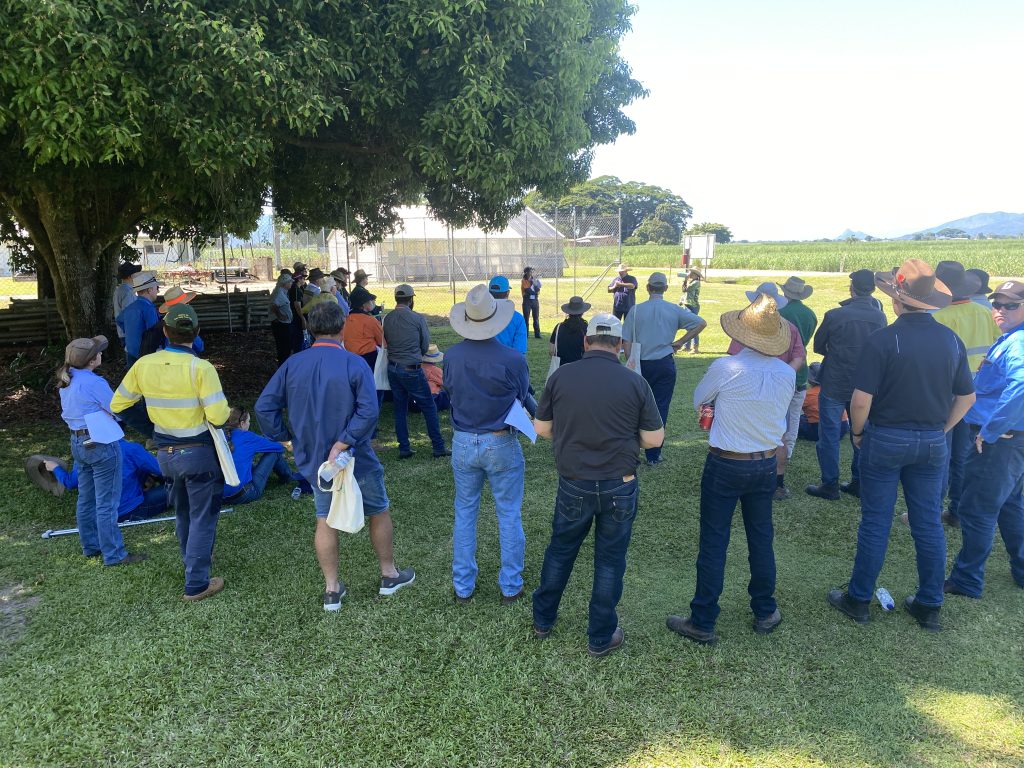
During Day 2 the management of 2,4-D drift, weeds and feral pigs was discussed by the groups. Finally, the benefits of nutrient management, soil sampling and soil health were explored in detail by presenters. Presentations highlighted the need for soil health in sustaining productivity. To conclude the conference, interested participants were invited to visit the HCPSL hot water tanks at Victoria Mill.
Presentations and discussions from across the 2 days proved widely beneficial for all in attendance. HCPSL thanks all productivity groups and industry professionals who attended the conference and shared knowledge, contributed ideas and engaged in robust discussions.
HCPSL would like to acknowledge the following Sponsors of the 2022 Combined Productivity Services Group Conference – Wilmar, Nufarm, SRA and Burdekin Productivity Services.
Recent Comments